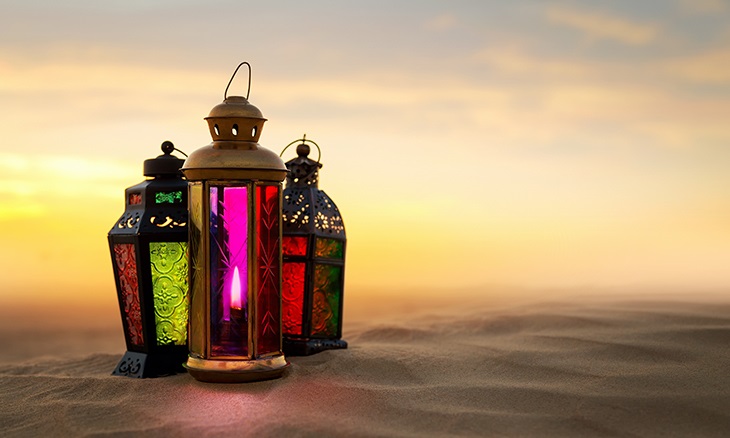We all think it: Are people who are sick or really old required to fast? It seems like an unreasonable request. Well, it is.
And that is why those who are sick temporarily or chronically; the elderly and weak; women who are pregnant, having post-natal bleeding, nursing, or on their period; and people who are traveling are not required to fast (for some in this list, fasting is not allowed at all because it would be detrimental to their health).
But how do Muslims who cannot fast still take part in the holy month of Ramadan? Do they feel different not fasting? Do they miss it? Are they happy they don’t have to fast? Are they judged by those who do fast? Here’s what some Muslims, who can’t fast, had to say:
Julia
My name is Julia from the UK, 32 and a revert of 7 years. I am a mum to 2 boys, ages 4 and 1. […] I am pregnant with my 3rd child, in the first trimester [and unable to fast].
My son is 4 and he is now able to understand Islam and life a little bit more. So we are doing plenty of crafts, reading, making decorations, [and] Ramadan calendar. He also helps me cook food for his dad’s iftar [the meal at sunset that breaks the fast].
We are also memorizing du’as [supplications] too. I am drawing nearer to God by limiting all things that may distract me. My advice to others in my situation is to let go of the guilt [of not fasting].
Once we realize that there is more to fasting in Ramadan, it will feel less stressful and then we can make the most of such a blessed month.
Christina
I am a 6th or 7th generation American and live in New Hampshire. I converted to Islam at the age of 16. So I’ve been Muslim now for almost 20 years.
In January 2012, I was diagnosed with Multiple Sclerosis. Between the loss of vision, chronic migraines, chronic fatigue, short term memory loss, muscle weakness, and muscle loss there has been a struggle to retain a sense of normalcy with a long list of medications and strict diet and exercise.
Because of this, I cannot fast without severe pain and fatigue. The first year I attempted to fast I was put into the hospital 2 times and had another MS flare-up which caused numbness in my left thigh. It took over a year to have a sense of balance again. So I have chosen not to fast for these health reasons.
Spiritually, it is hard to feel that happiness I felt when Ramadan came around. It’s harder to remain vigilant and read more Qur’an. I find myself feeling like the odd ball out when I go to the mosque or to a friends’ house to break-fast.
My husband who is a new Muslim has a hard time fasting on his own and I can only hope that he still feels that sense of love for Ramadan that I once had. I still try to pray more during Ramadan, I attempt to read the Quran from start to finish and gather with my sisters more often. […] But the excitement during Ramadan is no longer there now.
[…] I miss the social aspect of our sisters and brothers completing a hard goal together in unison. The first bite of the date after not tasting food all day and even the cool water. But I miss the feeling of accomplishment most of all. I cannot help but feel guilty during Ramadan for not fasting.
I understand that physically I shouldn’t, but in my heart I just want to partake and receive the benefits and rewards for doing so. On a very hot day, I’m thankful I can drink a glass of water when I need it and I don’t miss the pains of hunger. But my guilty conscious far outweighs these things.
Every year [Ramadan] is another chance to better ourselves however we can. It’s another chance to be closer to Allah. As hard as Ramadan can be physically, you never realize how important it is to strengthen our relationship with Allah until you lose that opportunity.
Samantha
I’m from Luton Bedfordshire, UK. I have a condition called Irritable Bowel Syndrome. Depending on the severity of the condition depends on what you can and can’t do […] I’m in a constant state of dehydration.
I have been told by my doctor not to fast, as I can become very ill. […] I feel very different than most others during Ramadan. And I feel upset that I can’t fast. I miss fasting. I felt closer to Allah when I was able to fast. So I read extra in Ramadan not only the Quran but other Islamic literature and pray extra during Ramadan.
I wake up to cook and feed those in my family who fast. Then I pray during the day. I tend not to go out as much due to needing to drink. So, I become more isolated. […] I have been told I’m not a good Muslim [because] I don’t fast. […] People don’t realize an illness can be invisible.
(From Discovering Islam’s archive.)

